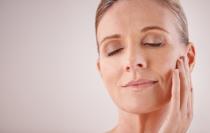Derived from the Greek word “kolla” meaning glue, collagen is literally and figuratively the protein-based substance that binds our bodies.
Comprised of amino acids such as glycine, proline, hydroxyproline and arginine, collagen is the most abundant protein – accounting for approximately 30 percent of the whole-body protein content. Most commonly found in the skin, bones and connective tissues, collagen is also present in smooth muscle tissues, ligaments, blood vessels and major organs.
According to Dr. Sergey Kalitenko, an internal medicine specialist with two practices in the New York City area, and Margarita Zeyger, the owner of Ecobeautica Medical Spa and Wellness Center, there are actually 28 different types of collagen, with the most important being Types I (skin, tendon, organs, and bone), II (cartilage), III (reticular), IV (basal membranes) and V (hair, placenta, cell surfaces). Types I, II, III and V are fibrillar, while Type IV is non-fibrillar.
The skin contains Type IV collagen in its basement membrane and Type I in its connective tissue. Its ability to support healthy skin comes from its interwoven fibers embedded in hyaluronic acid metabolites and proteoglycans.
As part of the connective tissue in the skin, collagen provides strength, structure, elasticity and firmness – something we take for granted when we’re younger, but pay careful attention to as we get older. In our 40s, collagen synthesis begins to decline; by the time we get through menopause, it drops even more dramatically. Hence, the sagging, wrinkled skin; brittle, listless hair; stiff joints; and other physiological changes typically blamed on old age.
In addition to aging, collagen depletion can be caused by smoking, sun exposure and high sugar consumption. Dr. Kalitenko cites numerous other culprits as well, including a lack of vitamin C, zinc and amino acids due to diet deficiencies or digestive system problems, autoimmune diseases like lupus and rheumatoid arthritis, and bacteria and viruses that secrete enzymes that destroy collagen. In addition, as a holistic practitioner who looks at the root causes of a particular condition before recommending treatment, Dr. Kalitenko also suggests that estrogen and testosterone deficiencies can play a part in reducing collagen levels.
While we can’t turn back the hands of time, we can take steps from a dietary and/or lifestyle perspective to mitigate collagen loss. Consuming a diet rich in vitamins A and C, copper, anthocyanidins (found in blueberries, blackberries and other berries) and proline (egg whites, meats, soy and cabbage) may help, as may reducing the amount of simple sugars and processed foods that we eat. And giving up smoking will not only prevent the nicotine and other chemicals from compromising collagen and elastin in the skin, but will reap innumerable other health benefits as well.
To get the skin-ny on collagen, and how maintaining adequate collagen levels can benefit you from a whole-body, functional perspective, schedule a consultation with Dr. Kalitenko at his Brooklyn office (718-382-9200) or Great Neck office (516-467-0253) or appointment with Margarita Zeyger at Ecobeautica Spa.
http://www.news-medical.net/health/What-is-Collagen.aspx http://www.medicalnewstoday.com/articles/262881.phphttps://en.wikipedia.org/wiki/Collagen
Related Pages
Facial
Supplement Counseling

